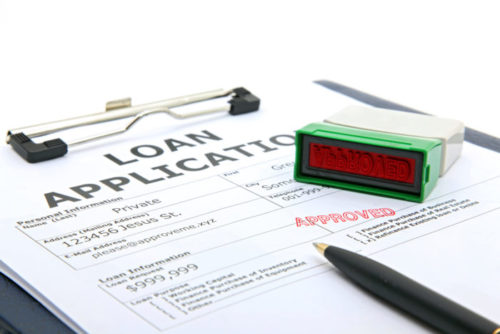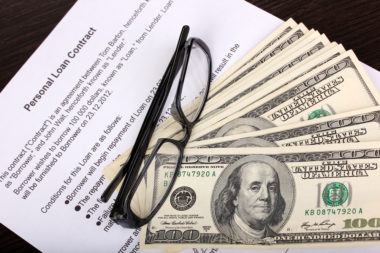No-interest loans can help someone who has financial hardship get ahead of a large purchase, such as furniture, medical debt, and sometimes auto loans. By paying off the loan amount within the required time limits, you only pay the principal, no interest.
These loans can potentially put people into more debt if the loan amount is not paid off on time. There may be other fees to be aware of when you are thinking of applying for a no-interest loan. It’s important to read the terms of the loan carefully to ensure you fully understand how much you are paying back.
Table of Contents
How Do No-Interest Loans Work?
Most lenders apply an interest rate to a loan to help mitigate the risk of the borrower defaulting on the loan. These rates vary depending on the borrower’s credit score, payment history, and loan term.
A no-interest loan allows the borrower to skip the interest payment, also called deferred interest, and pay directly to the principal, saving money in the long run. While this may seem worthwhile, if you cannot pay off the loan amount within the set time period, you could be charged the deferred interest.
Here is an example of how a no-interest loan works:
You take out a loan for $5,000 with a 6% annual percentage rate (APR) and a loan term of four years. By multiplying the principal amount by the APR and the loan term, you find your total loan amount is $6,200.
Let’s assume the lender is being generous and gives you a three-and-a-half-year interest-free period. If you pay off the loan within three-and-a-half years, you do not have to pay the $1,200 in interest. Your monthly payments would be about $119 and would go directly toward the principal.
However, if something happens and you are unable to pay off the loan within three-and-a-half years, or you make a late payment, you could be charged interest for the entire loan, which would amount to the original $1,200. For instance, even if you only have $500 left on the loan and the timeframe expires, you could be charged interest for the entire $5,000 loan. Now, you only have six months left to pay this loan, but the interest is added to your monthly payment, making the payment around $283.
By not paying off the no-interest loan within the three-and-half-year period, your monthly payments increased over $100. This increased payment could put some people in financial hardship, which is why it’s important to carefully consider if you can pay off the loan within the promotional timeframe or not.
Zero-Interest Loan vs. Deferred-Interest Loan
Some loans may offer zero interest instead of deferred interest, which can make a big difference. With a deferred-interest loan, you’ll pay interest for the whole loan amount once the promotional period is over. With a zero-interest loan, after the promotional period, you’ll only pay interest for the remaining balance.
Going back to the example above, say you took out a zero-interest loan and have $500 left to pay on the $5,000 principal. However, your three-and-half years of no-interest payments are up. Instead of being charged the full $1,200 of interest, you are only charged 6% interest on the remaining $500. This puts the total interest you would have to pay at $30, meaning you’ll have to pay $530 within the last six months of the loan term.
Types of No-Interest Loans
Many no-interest loans are offered by retailers or non-profits that can help people in financial hardship. Examples of these loans include:
- Furniture, appliance, and electronic loans: Often, people cannot pay the full amount for these home items when they purchase them. Many retailers offer no-interest loans to help people afford these items. However, if you don’t pay off the loan within a certain time period, or you miss a payment, you could be charged deferred interest.
- Auto loans: Buyers with good-to-excellent credit may qualify for no-interest auto loans. Dealers may use this incentive to entice people into buying a car. While this may seem like a good option, your car loan payment could be higher due to the lack of interest, and you could miss out on other incentives like manufacturer rebates.
- Medical loans: Paying off medical debt can be expensive and overwhelming. Your doctor may participate in a lender’s program that offers no-interest loans to help you pay these expenses. However, after the deferred-interest loan payment period, you could be charged a higher interest rate that may make your medical debt even bigger.
- Nonprofit loans: Some nonprofits could offer emergency assistance in the form of a no-interest loan. It’s important to note that these loans must be used for specific purposes, including childcare, healthcare, or other emergencies.
People who are interested in these types of loans should read the fine print carefully to ensure they won’t pay more than they intend to in deferred interest.
No-Interest Loan Considerations
A no-interest loan can seem appealing to those who don’t want to pay interest, however, there are requirements that determine whether or not you qualify.
Most lenders require a good-to-excellent credit score, especially for auto loans. The better the credit score, the more likely you are to get approved. Additionally, your credit score could help determine the loan amount, payment, and term. People with below-average credit scores could possibly obtain a no-interest loan, however, it is very rare.
No-interest loans are good for people who can pay off the full balance within a set time period. You’ll want to pay off the loan as quickly as possible. Pros to going this route include:
- Freeing up cash to be used in the future;
- Positively affecting your credit score;
- Being debt-free and obtaining financial freedom.
There are also cons to paying off a no-interest loan early, including:
- Putting yourself in financial hardship to pay off the debt;
- Using emergency cash to help pay off the debt;
- Abusing your budget by trying to pay off the debt.
People who are interested in no-interest loans should consider the following when thinking of applying:
- Read the fine print carefully;
- Ask the lender any and all questions you have;
- Ensure you can make every monthly payment on time;
- Integrate the monthly payment into your budget.
Alternative Options to No-Interest Loans
If you can’t get a no-interest loan, there are other options to consider:
- Personal loans: This loan allows you to receive the loan amount within a short amount of time without collateral to qualify. However, the loan does require a good credit score and a reliable income to show that you can be trusted to pay it back.
- 401(k) account loan: Your 401(k) may allow you to borrow money from the account. Typically, you can borrow up to $10,000 or 50% of the vested account balance. There is interest on this loan, but the payments go directly to your retirement account. Additionally, there is no credit check required.
- Credit cards with an introductory period: Some credit cards offer an introductory 0% APR. This card can allow you to transfer balances or make purchases without paying interest. After the introductory period ends, cardholders experience a high interest rate.
- Home equity loan: If you are a homeowner, you could borrow against your property’s equity. It is a one-time loan that uses your house as collateral, which can help you obtain the loan a bit easier. These loans also have no interest.
- Home equity line of credit: A line of credit works similar to a credit card, however, the interest rate is typically lower than a credit card or personal loan. The more you pay off, the more credit you receive.
No-interest loans may seem worthwhile, however, you should understand the terms to ensure you are confident you can pay the debt before the end of the timeframe. By understanding how no-interest loans work and knowing your alternative options, you can make an informed decision that fits your financial lifestyle.
Image Source: https://depositphotos.com/





